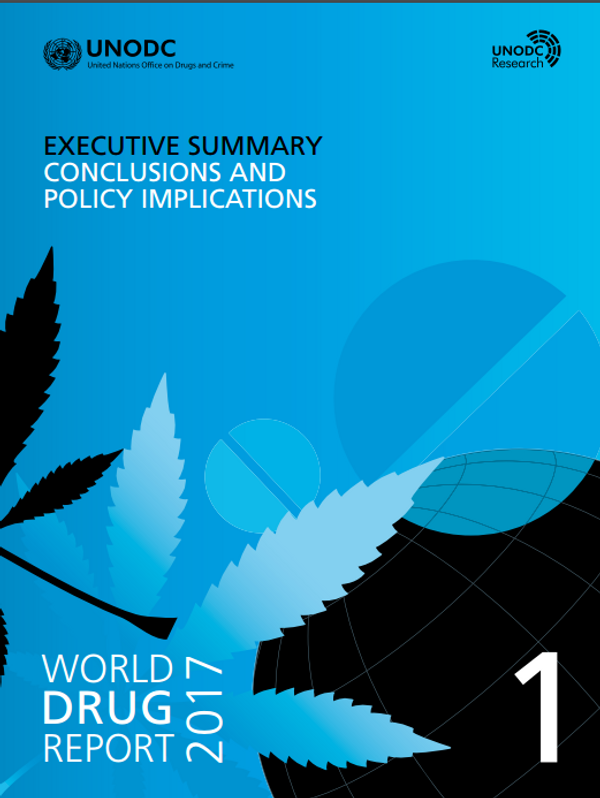Rapport Mondial sur les Drogues 2017
L’Office des Nations Unies contre la Drogue et le Crime examine la situation mondiale de la culture et de l’usage de drogues dans le Rapport Mondial sur les Drogues 2017. Pour en savoir plus, en anglais, veuillez lire les informations ci-dessous.
Abonnez-vous à l'Alerte mensuelle de l'IDPC pour recevoir des informations relatives à la politique des drogues.
In 2015 about a quarter of a billion people used drugs. Of these, around 29.5 million people - or 0.6 per cent of the global adult population - were engaged in problematic use and suffered from drug use disorders, including dependence. Opioids were the most harmful drug type and accounted for 70 per cent of the negative health impact associated with drug use disorders worldwide, according to the latest World Drug Report, released today by UNODC.
Disorders related to the use of amphetamines also account for a considerable share of the global burden of disease. And while the market for new psychoactive substances (NPS) is still relatively small, users are unaware of the content and dosage of psychoactive substances in some NPS. This potentially exposes users to additional serious health risks.
The Report finds that hepatitis C is causing the greatest harm among the estimated 12 million people who inject drugs worldwide. Out of this number, one in eight (1.6 million) is living with HIV and more than half (6.1 million) are living with hepatitis C, while around 1.3 million are suffering from both hepatitis C and HIV. Overall, three times more people who use drugs die from hepatitis C (222,000) than from HIV (60,000). However, the Report stresses that despite recent advances in the treatment of hepatitis C, access remains poor, as treatment remains very expensive in most countries.
This year marks 20 years of the World Drug Report, which comes at a time when the international community has decided to move forward with joint action. UNODC Executive Director Yury Fedotov highlighted that the outcome document of the 2016 landmark UN General Assembly special session on the world drug problem contains more than 100 concrete recommendations to reduce demand and supply, however he acknowledges that more needs to be done.
"There is much work to be done to confront the many harms inflicted by drugs to health, development, peace and security, in all regions of the world," said Mr. Fedotov.
Click here for more information.
Keep up-to-date with drug policy developments by subscribing to the IDPC Monthly Alert.
Sujets
- Cannabis & dérivés
- Coca, cocaïne et substances associées
- Décriminalisation
- Opium & opioïdes
- Nouvelles substances psychoactives
- Overdose
- Prisons et incarcération
- Marchés des drogues réglementés
- Réduction de l'offre
- Crime transnational et organisé
- Conventions de l'ONU sur les drogues
- UNGASS de 2016
- Violence, action policière et sanctions
- Santé et réduction des risques
Régions
Profils associés
- United Nations Office on Drugs and Crime (UNODC)
